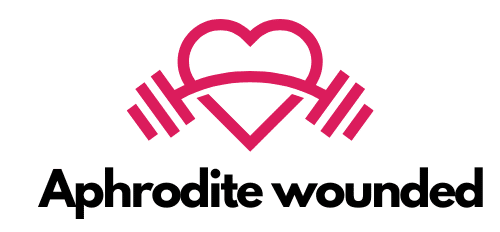How Can Technology-Assisted Meditation Improve Anxiety in College Students?

The surge in technological advancements has opened up a new vista of opportunities in various fields, including mental health. This article delves into the impact of technology-assisted meditation on anxiety levels among college students. Incorporating the use of apps and mindfulness practices, this intervention strategy is scientifically based on a series of university trials and studies. The aim is to enhance the mental well-being of students, enabling them to deal more effectively with the inevitable stress and pressures of college life.
The Prevalence of Anxiety Among College Students
Before exploring the solutions, it’s essential to understand the magnitude of the problem. According to a study published on PubMed, an alarming number of college students are found to suffer from anxiety.
Sujet a lire : What Are the Benefits of Infrared Sauna Therapy for Detoxification and Relaxation?
Anxiety is more than just a fleeting feeling of fear or worry. It can be debilitating, affecting a student’s ability to study, concentrate, socialize, and even sleep. When left untreated, it can lead to more serious mental health problems.
College students are particularly susceptible to anxiety due to various factors. These can range from the pressure of academia to social anxieties and the stress of navigating independence. This issue has been amplified in recent years due to the added strain of virtual learning and social isolation amplified by the COVID-19 pandemic.
Sujet a lire : How Does the Regular Practice of Shinrin-Yoku (Forest Bathing) Affect Immune System Function?
The Intersection of Technology and Mindfulness
In the midst of this mental health crisis, there’s a glimmer of hope: the fusion of technology and mindfulness. Mindfulness-based interventions have been shown to reduce anxiety and stress significantly. When combined with the accessibility of technology, the benefits can reach more students than before.
In recent years, a plethora of mindfulness and meditation apps have emerged, providing guided meditations, breathing exercises, and mindfulness practices to millions of users. These apps have made meditation more accessible, breaking down barriers of time, location, and stigma that may have previously deterred students from giving meditation a try.
These apps offer a diverse range of mindfulness practices, catering to the different needs, preferences, and lifestyle of each student. Some are designed to promote sleep, others to enhance focus, while many are aimed specifically at reducing stress and anxiety.
The Role of Meditation in Mental Health
The practice of meditation goes back thousands of years, but only in recent decades has its positive effects on mental health been scientifically validated. A trial published on Crossref revealed that meditation significantly reduced anxiety scores among university students.
Meditation, particularly mindfulness meditation, promotes a state of active, open attention on the present. It allows participants to observe their thoughts and feelings without judgment. By teaching students to distance themselves from their stressful thoughts and focus on the present, they can gradually reduce their anxiety levels.
Technology-Assisted Meditation Trials in Universities
Numerous university trials have explored the impact of technology-assisted meditation on students’ anxiety levels. In one trial, students used a meditation app for several weeks, with results demonstrating a substantial reduction in self-reported anxiety scores.
In another study, university students were asked to use a mindfulness app daily for a certain period. After the intervention, there was a significant reduction in anxiety levels, as well as improvements in sleep quality and overall well-being.
These trials are just a few examples of how technology-assisted meditation can be an effective tool in managing anxiety among college students.
How to Incorporate Technology-Assisted Meditation in Student Life
The beauty of technology-assisted meditation is its adaptability. It can seamlessly fit into the busy schedule of a student, providing a quick respite in between classes or a calming activity before bed.
It starts by choosing the right app. There are many meditation apps available, each with its unique features and benefits. Some offer guided meditations, others provide peaceful sounds or music, and some incorporate a combination of these elements.
Once the app is chosen, it’s all about making meditation a regular habit. Just like studying or exercising, consistency is key. Even just a few minutes a day can make a difference. Over time, as the practice becomes more ingrained, students may find themselves reaching for their meditation app whenever they feel the onset of anxiety.
Incorporating technology-assisted meditation into student life is not just about reducing anxiety. It’s about enhancing overall well-being, promoting positive mental health, and equipping students with a lifelong tool to manage stress.
The Promising Future of Technology-Assisted Meditation
As the intersection of technology and mindfulness continues to evolve and innovate, it holds immense potential for mental health, particularly in dealing with anxiety among college students. The prevalence of smartphones and digital devices among students makes technology-assisted meditation a convenient and easily accessible tool to promote mindfulness.
Newer apps are continually being developed, offering a wide range of features and personalization options to cater to diverse needs. These include customizable guided meditations, mood tracking, stress triggers identification, and even meditation challenges to encourage consistency.
The future also looks promising with the advent of Virtual Reality (VR) meditation experiences. This technology takes mindfulness to a whole new level, allowing students to immerse themselves in serene environments, significantly enhancing their meditation experience. A study on Crossref showed that VR meditation has been successful in reducing stress levels among its users.
The emergence of artificial intelligence (AI) in this domain also opens up exciting possibilities. AI can be used to personalize meditation routines based on the user’s specific needs and progress, further improving the effectiveness of technology-assisted meditation.
Continuous research and trials conducted by universities worldwide are shedding light on the numerous benefits of mindfulness practices, thus reinforcing their importance in mental health management.
Conclusion: A Lifelong Tool for Mental Health
In conclusion, the technological revolution has indeed provided a new perspective and approach in dealing with anxiety among college students. The fusion of technology and mindfulness meditation has not only made meditation more accessible but also more effective in managing anxiety.
University trials have shown the significant positive impact of technology-assisted meditation in reducing anxiety levels, improving sleep quality, and enhancing overall well-being among students. The wide array of apps available caters to the unique needs, preferences, and lifestyle of every student.
However, it’s important to note that while these meditation apps are a valuable tool, they are not a substitute for professional help. Students with severe anxiety or other mental health issues should seek appropriate support from mental health professionals.
By embracing technology-assisted meditation, college students are equipped with a lifelong tool to manage stress and anxiety. This not only improves their academic performance and social relationships but also significantly contributes to their overall mental health and well-being. Beyond college, these practices could be instrumental in helping them navigate the challenges and pressures of adult life.
In the midst of a mental health crisis, technology-assisted meditation emerges as a beacon of hope, paving the way for a healthier and more mindful generation.
